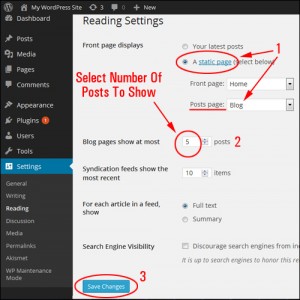Here’s what makes work unhealthy
In their new book, David Allen and Edward Lamont break down why so many workers are experiencing burnout—and what employers can do to help.
BY David Allen and Edward Lamont
When one of our clients joined the leadership team of an international financial institution based in Germany, there was a standing item on the executive team’s meeting agenda: burnout cases. That was costly from a time perspective, of course, but that they were spending time on it in each of their meetings was the least of the costs—human and financial—for the organization.
In Germany burnout isn’t just a water cooler complaint. It is taken very seriously by the authorities and has real consequences for organizations where affected individuals work, and for the economy. Employees who are suffering from burnout are signed off as sick but continue to be paid by their employer or an insurer for up to a year and a half. Their jobs must be held for them if they return, and when they do there is a structured process for ramping up their workload; ten hours in week one, fifteen hours in week two, and so on. From a human standpoint it is a well-designed process for reintegrating burnout cases. Often it works. And still, long after they return, there remains uncertainty: Will they be able to take the pressure again? Someone who was once a stalwart resource has become a question mark on the team.
As far back as 2015, Gallup estimated that burnout was costing the German economy roughly €9 billion annually. It’s not just affecting Germany. The same trends are being seen elsewhere, particularly as people came back to a new world of work after the COVID-19 pandemic.
And contrary to received wisdom, it isn’t happening only to those at the bottom of the organizational pile. A recent survey by Deloitte showed that more than two-thirds of C-suite executives were thinking of quitting because of burnout.
Even pre-pandemic, the trend was clear. Our client in Germany described it this way: “I found myself in conversation after conversation in which people were telling me that they were overworked, this person was overwhelmed, and that one was off sick. The conversation was always negative. It was, ‘We need this’ or ‘Why don’t we have that?’ rather than, ‘Here is what we’re going to do with the available resources.’ People were falling over from overwhelm.”
What makes work unhealthy?
We see numerous factors at play. One is volume. Research done by Martin Hilbert and Priscilla Lopez showed that in the mid-1980s, we were taking in about the equivalent of forty newspapers’ worth of information per day. By 2007, that number had more than quadrupled. It won’t have shrunk since. The time available to process all that additional information had, unfortunately, not kept pace.
Much of that increase is due to advertising, and some to viral cat videos, but it is no less exhausting for that. In our experience the obvious actionable inputs per se have not increased significantly. What has increased are the inputs on which we might decide we want to act—e.g., cc’d emails, group chats, FYIs, and social media rabbit holes.
Workwise, these days we are all trying to keep our feet under ourselves in the digital equivalent of a powerful current. Without a strategy for dealing with it, we get swept off our feet. No matter how smart you are, this current is—like an ocean current for a swimmer— much, much stronger than any one individual can withstand on their own. As in the ocean, without a plan you will be swept out to sea. What does “swept out to sea” in this digital riptide look like?
For individuals, it looks like checking your device first thing and last thing every day, being late and underprepared for meetings, scrolling up and down in your inbox flagging and re-flagging mails, prioritizing interaction with people who are not present over people who are, and using search terms in Google such as “anxiety,” “depression,” and—yes—“burnout.”
People are switching primary inboxes as a solution to their overwhelm, but mostly they are just accumulating inboxes, which only contributes to it. They stagger from Zoom meeting to Teams meeting and back again with overfull bladders and often little idea of why they are in the meeting in the first place.

Individuals live consistently in overwork and overwhelm for so long that it feels “normal.” Comfortable even. They go blind to what it means for their family that they are not home for significant occasions, or able to reach out to friends in need, or volunteer in their communities. With the amount of work they have on deck, how could they fit it all in?
With the increase in volume, our minds are so overwhelmed by incoming info that we can’t cope. The constant demand for reactivity has reduced our ability to discern what is truly important and what is simply new and clamoring for a quick response, leaving many worrying about immediate responses to things that have little meaning. Immediate responses often required because of someone else’s inefficiency and lack of control. Interruptitis becomes the order of the day. It’s as if we’ve lost the ability to make sense of a situation for long enough to get our bearings and navigate out of the problem. Instead we are stuck scrolling, swiping, and flicking to keep up. Overwhelmedby the volume, scrolling offers what feels like a bit of peace. Unfortunately it’s not peace; it’s numbness. But when we’ve not felt genuine peace for a while, most of us will readily accept even a very poor simulacrum.
For teams, too, there are plenty of signs and symptoms of burnout.
Excerpted with permission from TEAM: Getting Things Done with Others (Viking Books; on sale: May 21.)
David Allen is an international best-selling author who is widely recognized as the world’s leading expert on personal and organizational productivity. Time Magazine called his flagship book, Getting Things Done “the definitive business self-help book of the decade.”
Edward Lamont is co-founder and senior partner of Next Action Associates, the GTD partner for the UK and Ireland. He has over 25 years of experience in executive coaching, training and consulting in the areas of leadership, productivity, and motivation.
ABOUT THE AUTHOR
(15)
Report Post




